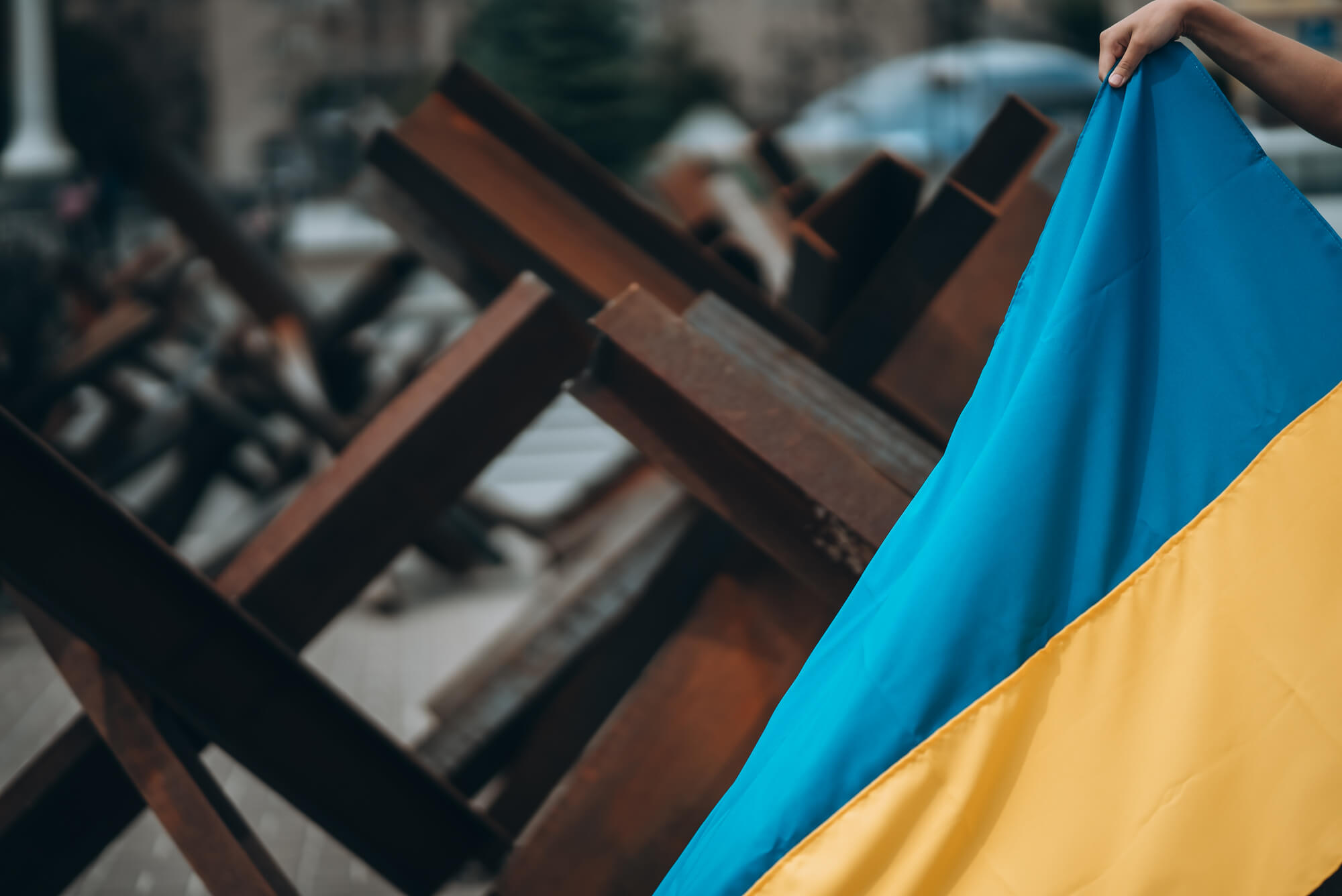In early 2022, when Russia only started its full-scale invasion, many people in the West hoped that Russians would protest against the war. Yet, we don’t see any war protests not only in Russia, where people may be afraid to express their position, but even in the developed states where it is safe to protest. Millions of people from the Russian diaspora remain silent. Is it because they support the war?
Protests manifest the collective will of the people, capturing their aspirations, frustrations, and demands. They serve as a critical tool in democratic societies for citizens to voice their concerns, put pressure on governments, and catalyze social and political change. The power of protests is not confined by geographic boundaries; it is a universal phenomenon that underscores the role of civil society in shaping the course of nations.
In the context of Ukraine, the Revolution of Dignity stands as a powerful demonstration of the strength of civil society. The unexpected and powerful civic movement that rose in response to the government’s abrupt decision to abandon the agreement with the European Union led to significant political and social transformations. In a few weeks, millions flooded Kyiv, while millions more stood united in solidarity across cities throughout Ukraine. Despite being threatened, beaten, kidnapped, and even killed, the protesters remained resolute. In fact, their desire for freedom and justice eventually forced former president Yanukovych, who turned against people, to flee to Russia.
But the unity and determination of the people who cherish freedom can also be demonstrated beyond their national borders.
On February 25, 2022, Ukrainians across the globe took to the streets, expressing their solidarity with their homeland and their defiance against the aggressor. The slogans ranged from denunciations of the Russian leadership to demands to stop the war. These demonstrations were not merely expressions of national pride; they were a powerful manifestation of the global Ukrainian community’s resilience, unity, and commitment to their country’s sovereignty and freedom. It was also a manifestation of humanity and integrity.
This display of unity offered crucial support to those in Ukraine facing the intrusion of their homes by hostile forces. Rapidly, these vocal marches evolved into an immense volunteer force operating on multiple fronts. They have been working on fundraising and supplying equipment to defenders on the battlefield, collecting donations, organizing refugee camps, lobbying for political, financial, and military support for Ukraine, and counteracting propaganda on the internet.
A united and vocal civil society is significantly more powerful than one might imagine. The impact we see and feel today and every day.
With that in mind, could we expect the Russian diaspora, including recent “refugees,” to organize in support of Ukraine and/or against their authoritarian government?
Support from the Russian diaspora for Ukraine could carry substantial weight, considering their large numbers and potential influence. With an estimated Russian population of nearly 2.5 million in the United States and around 1 million residents fleeing Russia since the onset of the full-scale invasion, if this considerable demographic were to be mobilized, it could exert significant pressure and influence over the current war.
If Russians residing abroad showed their support for Ukraine, it would have communicated a powerful signal to those within Russia that they are not isolated in their opposition to the regime. This could have triggered a more robust response within Russia itself, prompting more individuals to question, challenge, and resist Putin’s regime. The domino effect of such an action could have enhanced both the domestic and international response to the ongoing war on Ukraine.
By taking a public stand for Ukraine, the Russian diaspora and recent “refugees” would not only express their concern for the war in Ukraine but also make a strong statement against the assumption that their Russian heritage automatically aligns them with Putin’s regime. This act of solidarity could trigger a shift in perception, which would be beneficial for them. It could help dismantle stereotypes, foster greater understanding and compassion for the Russian community worldwide.
However, it did not happen.
As we approach the two-year mark of the full-scale invasion, it is disheartening to see the absence of clear and affirmative support for Ukraine from the Russian diaspora globally. There could be a few potential reasons for this lack of action.
First, they victimize themselves claiming they are hostages of Putin’s autocratic regime. This self-victimization excuses them from the responsibility to act, as they pretend to be powerless against the overarching political structure back at home. As a matter of fact, they expect Ukraine and its allies to take down the regime, while their family members and friends are committing war crimes in Ukraine.
Second, they might underestimate the strength of a united and vocal society. They don’t believe in peaceful marches and collective statements, which is paradoxical, considering that they reside in a country where concerted voices have a history of initiating change. The impact of public solidarity and support can significantly shift the course of events, yet their actions may suggest a lack of belief in this principle.
Third, their silence may indicate an alignment with Putin’s agenda – to genocide Ukrainians and occupy their land. Historically, Russians have viewed Ukrainians as a subordinate class, as a part of the “Russian people”. Therefore, witnessing Ukraine’s confident transformation into a country embodying democratic values and lifestyle may be very uncomfortable for them, prompting their silence.
The silence of the Russian diaspora in the US (and other democratic countries) holds significant implications for both national and international security. First, this silence can inadvertently contribute to the spread of misleading narratives and disinformation, impacting the stability of societies and the security landscape globally. Second, it provides an ideal environment for Russia’s FSB (formerly known as KGB) to deploy their agents disguised as “asylum seekers” and promote their agenda against the West.
So, what can be done? It is obvious that rallying in support of Ukraine cannot be forced, nor can actions to stop the war in Ukraine be expected. However, there are actions the US Government can take. The US Government should declare the Russian state a sponsor of terrorism. This designation would necessitate more stringent vetting procedures for new “refugees” arriving from Russia. It would also enforce stricter monitoring of the Russian diaspora members’ activities to prevent spreading damaging misinformation and incidents involving Russians selling to Russia American technologies that it uses in the war. Furthermore, the United Nations should exclude Russia from the Security Council. The constant presence of Lavrov with veto power over any decision supporting Ukraine, coupled with photo and press conferences, sends an unambiguous message to Russians, no matter their location. This message falsely validates their nation’s actions and discourages opposition to the war, as it creates an illusion of United Nations approval.
Ultimately, these actions may lead Russians to realize that silence is not beneficial, prompting them to disassociate themselves from acts of terrorism and contribute to ending this unprovoked war on Ukraine.
Attention
The author doesn`t work for, consult to, own shares in or receive funding from any company or organization that would benefit from this article, and have no relevant affiliations


